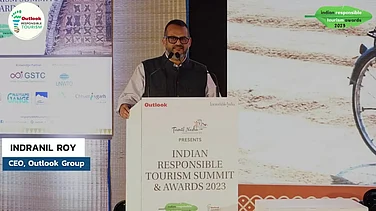Hawaii Volcanoes National Park located on the Big Island gets new land. It aims to protect and manage precious white sand beach and ocean bay area which is home to some rare species and Native Hawaiian artefacts as they are culturally significant. It has the world’s largest and most active volcanoes – Mauna Loa ad Kilauea. The coastline is made of ancient lava flows, block rock and sea cliffs. It is where the bay is situated.
Hawaii Volcanoes National Park Aims To Protect Native Hawaiian Artefacts And Other Rare Species
It aims to protect and manage precious white sand beach and ocean bay area which is home to some rare species and Native Hawaiian artefacts as they are culturally significant

As per media reports, Trust for Public Land is a national non-profit land preservation group. It has transferred the ownership of Pohue Bay and other surrounding lands to the National Park Service.
Pohue Bay, known for its scenic oasis, is home to rare hawksbill, sea turtles, green sea turtles, Hawaiian monk seals and other species which can be found only in Hawaii. The pool has a mix of fresh as well as salt water. It houses Hawaiian’s rare red shrimp.
The park officials have opened the area for public visits. However, 26 square miles (67 square kilometres) of land will remain closed to visitors. The national park staff want to consult the local experts and residents about the various cultural sites before letting the public visit the park. With this decision, the park size becomes 554 square miles (1,425 square kilometres). It is as large as the island of Oahu in its entirety.
According to Trust for Public Lands, the area also has cultural significance as it has the remains of ancient Hawaiian villages, petroglyphs, and burial sites. It is also known for the largest abrader tool quarry in the state. Abrader is an ancient tool which is used for field work like sanding, smoothing and grinding.
As per the media report, the portion which stretches from the southwest coast of Hawaii Island up to the national park was bought by the Land and Water Conservation Fund along with a donation from the Wyss Foundation for $9.4 million (Rs 74,40,47,130 approximately). The land has been sought after by many people.
-
Previous Story
 Tom Holland Recalls ‘Trip Of A Lifetime' Visiting India With Girlfriend Zendaya
Tom Holland Recalls ‘Trip Of A Lifetime' Visiting India With Girlfriend Zendaya - Next Story


















